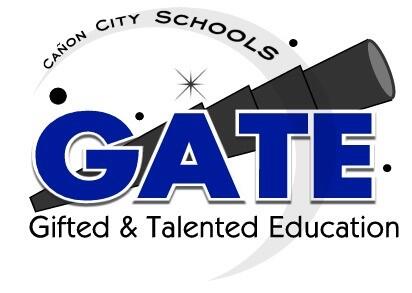Social-Emotional-Affective

The gifted and talented program in Cañon City Schools takes the social-emotional needs of gifted learners very seriously. It is important to each of us that gifted learners feel safe in our schools, have the opportunities to express their feelings, and are encouraged and taught to respect others.
Because gifted children demonstrate greater maturity in some domains over others, they may be at greater risk for specific kinds of social-emotional difficulties if their needs are not met.
These aspects may include heightened awareness, anxiety, perfectionism, stress, issues with peer relationships, and concerns with identity and fit. Parents, adults, and caregivers in their lives need to stay in tune with their specific child's needs, and help shape a strong framework for social-emotional health.
Keep in mind:
- A child gifted in one area does not mean gifted in all
- Giftedness can lead to the masking and misunderstanding of problem signs
- Not all gifted children are alike, including their own unique social-emotional profile
- There is no single, definitive recipe for maintaining a child's emotional equilibrium
- Parents need to model balance and set the tone to reduce stress/anxiety in the gifted child's life
- We can teach our children strategies and provide tools for dealing with the ebb and flow of life
Each child, regardless of ability, has his/her own personality characteristics that lead to certain social and emotional needs. In addition, each child has needs that arise because of the situation or environment in which he/she lives. Children with high abilities, however, may have additional affective needs resulting from their increased capacity to think beyond their years, greater intensity in response, combinations of unique interests, personality characteristics, and conflicts that are different from those of their age mates. It is important to provide a systematic and differentiated program of affective services, K-12, for these students; this proactive approach will facilitate development of their high potential and promote their positive adjustment.
Social and Emotional Issues Facing High Ability Students
1. Overexcitabilities: Gifted students may have “intensities” that may manifest themselves in one or more of these areas (Dabrowski’s Theory):
- Intellectual intentness and focus on a particular topic.
- Greater sensitivity to environment (appreciation for music or art, sensitivity to loud noises or bright lights, more allergies, etc.).
- Surplus of physical energy
- Vivid imagination and creativity
- Heightened emotional sensitivity (reaction to criticism, perfectionism, empathy, attachment).
2. Asynchronous development: Physical, cognitive, and emotional development may be at different places within the same child:
- Presents a number of problems for the child with exceptional abilities.
- Adults, accustomed to advanced verbal reasoning from the child, may fail to understand emotional outbursts more typical of his/her chronological age.
- The child may find it difficult to communicate with age mate peers who are considerably below her intellectual level, even if they are at the same level emotionally.
- In general, the greater the level of ability, the greater the discrepancies.
3. Perfectionism: high ability students may:
- Place unrealistically high standards for performance on themselves. May result in anxiety, frustration, or self-blame for less-than-perfect performance.
- Feel as though others (parents or teachers) have unrealistically high expectations. This may result in fear of failure, avoidance of challenges, depression, and connection of self-worth to performance.
- Develop unrealistically high standards for the performance of others.
4. Self-esteem/Identity issues: High ability students may experience difficulty constructing their identities, which may lead to lowered selfesteems. Difficulty with identity development may result from any of the following:
- Lack of understanding of higher abilities and their implications
- Feeling different from one’s same-age peers
- Behaviors inconsistent with gender role expectations (e.g., sensitivity in gifted boys, assertiveness in gifted girls)
- Being identified as learning disabled as well as having high abilities
- Differences resulting from cultural, linguistic, or SES differences
Check out these sites for more information:
Pushing Back on Perfectionism: How to be Happily Imperfect
https://counseling.northwestern.edu/blog/maladaptive-perfectionism-coping-strategies/
*From "Counseling@Northwestern Northwestern University's online Master of Arts in Counseling program"
10 Social & Emotional Needs of the Gifted - Byrdseed
http://www.byrdseed.com/10-facts-about-social-emotional-needs-of-the-gifted/
Supporting the Emotional Needs of the Gifted - SENG
http://sengifted.org/
The Social-Emotional Needs of Gifted Learners - Great Potential Press
http://www.greatpotentialpress.com/authors/author-articles/the-social-emotional-needs-of-gifted-learners

.png)
